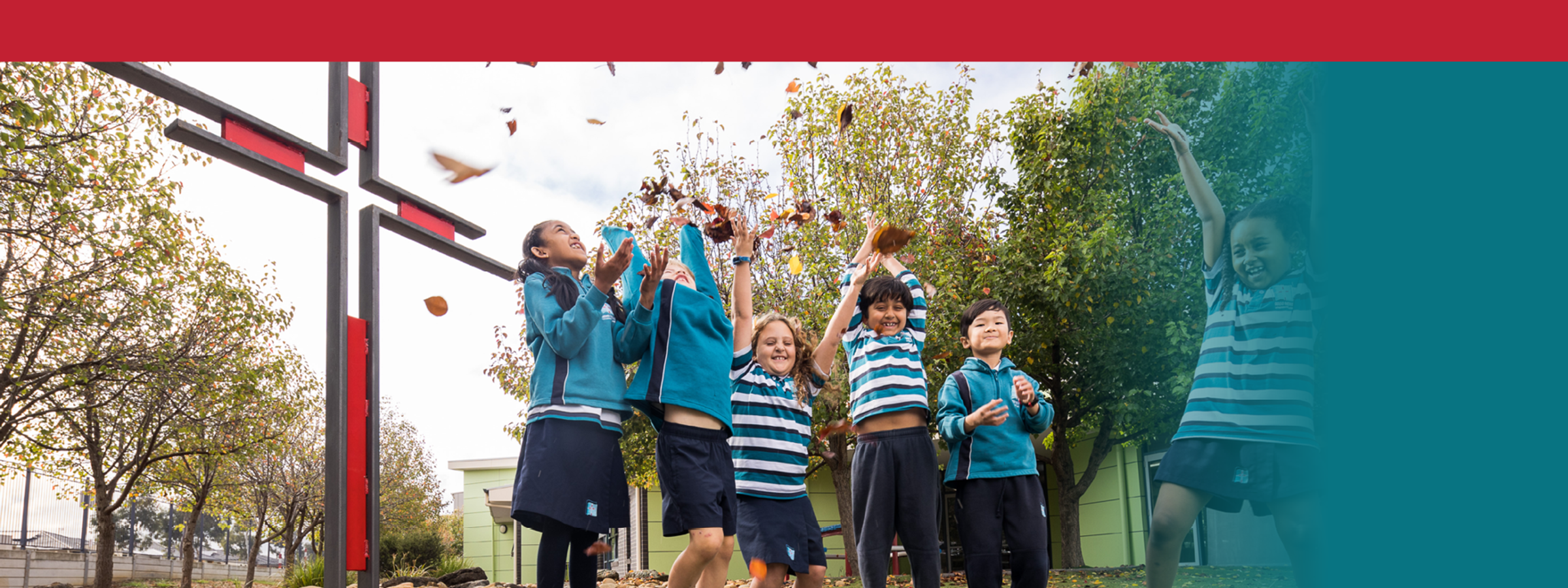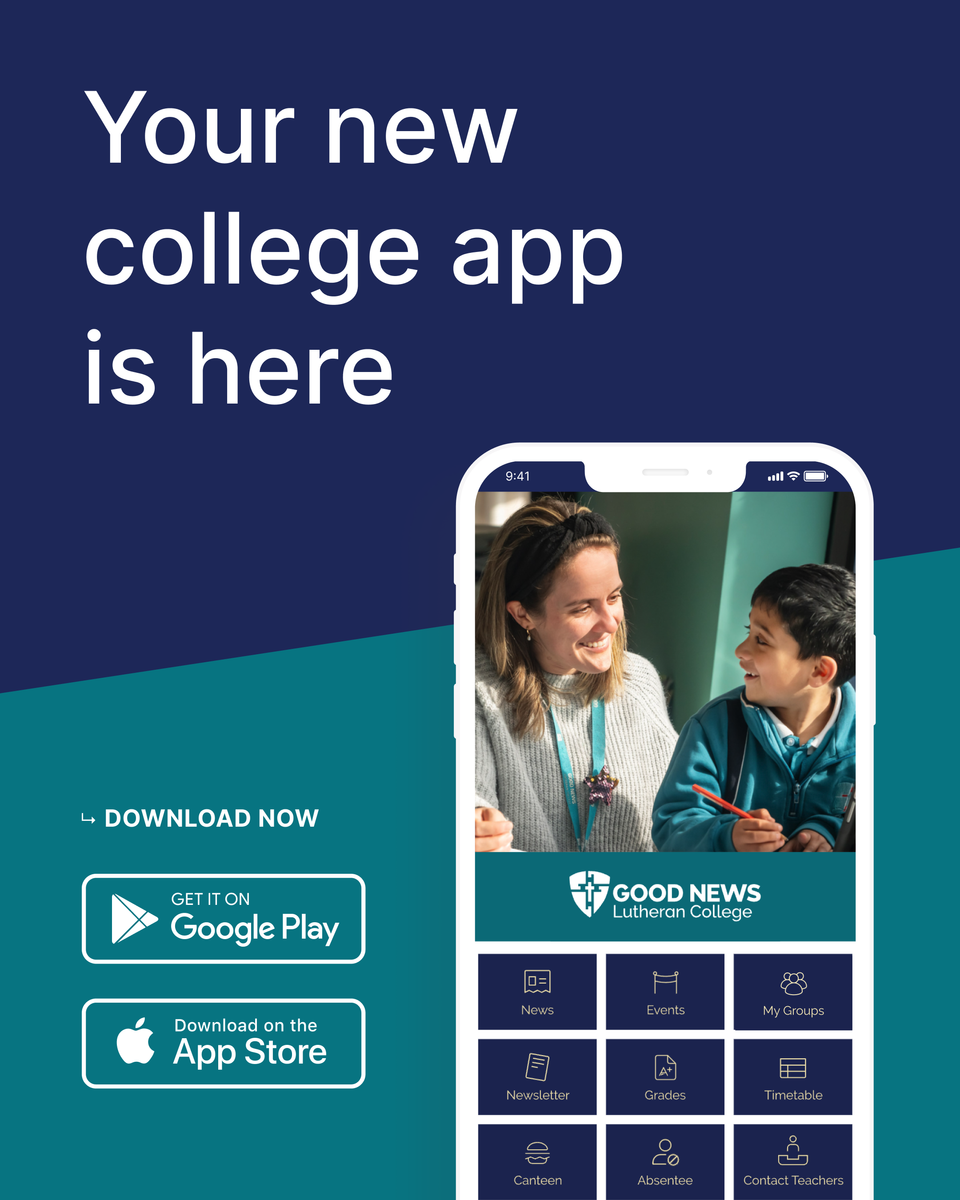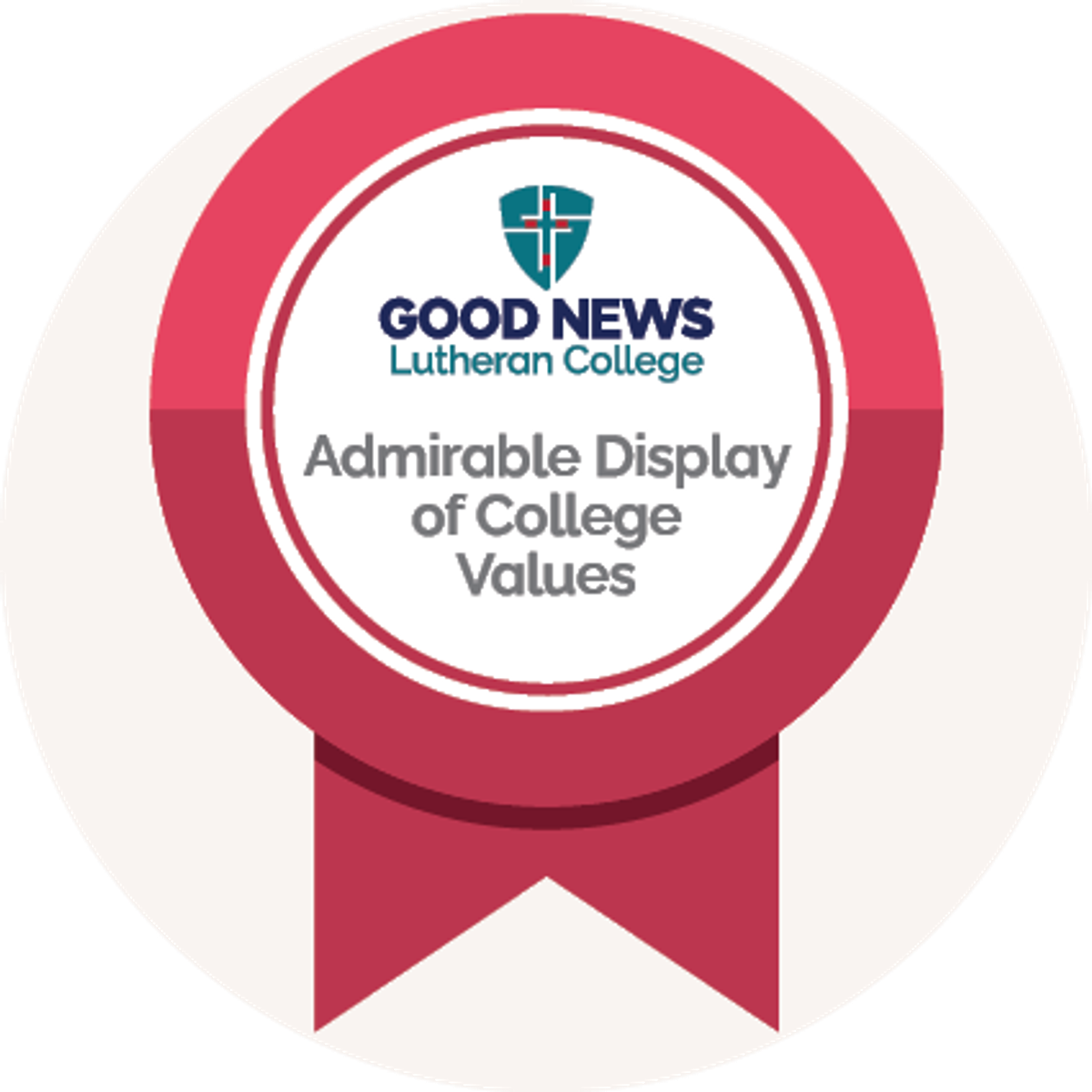Primary Years, Tarneit
Ms Maria Denholm

Primary Years, Tarneit
Ms Maria Denholm
It was pleasing to see so many Primary Years parents come along to the SchoolBox Information Sessions which were offered as part of the Year Level Information Evenings earlier this month.


It has been a year since SchoolBox was first introduced as the College Learning Management System (LMS) and like everything new, it has taken us all a bit of time to become familiar with how best to use it.
The most recent addition is the GNLC SchoolBox app which makes accessing the system on phones so much easier.
The teachers are continuing to also use it in more ways to support their planning, teaching, and assessing.
One aspect we are particularly excited about is SchoolBox Badges.
These are set up within the system for teachers to assign to students. You may start to see these during this term. The first badges will include:


This badge would not just be assigned to those students who hold leadership positions in the Primary Years, but also to those who may have represented the College in other ways including sports or the arts.


This badge would be assigned to a student who has demonstrated academic excellence in any area of their learning.


This badge would be assigned to a student who has been observed actively displaying any of the College values including Grace, Respect, Integrity and Courage.


This badge is assigned to a student who has consistently displayed class work above and beyond the expectation of the teacher.


This badge is assigned to a student who has shown effort above and beyond the expectation of the teacher.
Each badge assigned will include a short description of what the student did to receive the badge.
Later in the term, the attributes of the Learner Profile badges will become available. Following that those associated with the IB PYP Approaches to Learning will be added.
During Semester 2, teachers will begin assigning Australian Curriculum Subject area badges to indicate where students are currently working to the Achievement Standards.
Ms Maria Denholm
Head of Primary, Tarneit
Many parents may have read about or seen segments in the news regarding the recent Grattan Institute report – Australia needs a reading revolution.
At GNLC, we follow a structured literacyapproach to teaching reading in Prep-Year 6.
Within the first weeks of starting school in Prep, students begin phonemic awarenessactivities. These assist with training them to hear the sounds in words and provide repeated opportunities to practice the important foundational skills of blending and segmenting. From there teachers follow the Little Learners Love Literacyscope and sequence. This is a systematic synthetic phonics programmethat introduces students to the graphemes (letters) that match phonemes (sounds). These are taught from the simplest and become increasingly more complex as they move through the programme in Prep and Year 1.
From Year 2 – 6, our students continue to learn the many graphemes which represent the 44 sounds of the English Alphabet through a programme called PhOrMeS. This is a core literacy programme which teaches:
Phonology through phonics,
Orthography is the study of correct spelling and word reading, particularly irregularly spelt words, or those with irregular patterns.
Morphology - the study of the form of words or words’ morphemes (their smallest units of meaning). This teaches children the underlying patterns of meaning in English (prefixes, base words, root words and suffixes) and boosts their ability to accurately predict the meanings of words.
Semantics is the part of language involved with meaning.
Vocabulary is a critical component of literacy instruction which is taught during reading and within explicit vocabulary lessons.
In addition to this, each day students will practice reading fluency at their current level. In Prep this may begin with reading single letters and progress to complex passages in Year 6 related to the students learning in other curriculum areas.
Classes will also be exposed to rich literature which they will hear read aloud and read themselves. This will introduce them to topic specific vocabulary and various comprehension strategies which they can use to make sense of what they read.
From here the writing students do will relate to the reading they have done. Teachers will model specific genres e.g. narrative, persuasive, non-fiction reports etc as well as explicitly teach grammar and sentence structure.
All of this is part of a literacy block which usually takes place at the beginning of the day. An important aspect of this time is the daily review where students take part in spaced practice of the skills they have been taught. This ensures that they don’t forget what has been taught and it moves this information from short-term into long-term memory. Teachers will skillfully plan this block so that it links to and supports the PYP unit of inquiry.
For the first time last year, all our Year 1 students took part in the National Year 1 Phonics Screening Check which gave teachers further data about how the students were progressing in mastering these skills. Teachers assess students’ growth in Little Learners twice a year and from Years 2-6 complete benchmark assessments three times a year. This is in addition to the assessments which are shared with parents through SchoolBox.
If you have any questions about your child’s reading progress, please do not hesitate to speak with their teacher.
Ms Maria Denholm
Head of Primary, Tarneit
Welcome back to Term 1, 2024. It is already proving to be another exciting year at Good News Lutheran College. We are very proud of the way our students have settled into the new year, working hard with teachers to set strong routines for their future learning. We are looking forward to a terrific first term, building respectful relationships between staff, students and families.
We are continuing our successful Primary Years Programme (PYP) journey at GNLC this year. In the PYP, students use the inquiry process to pose questions and delve deeply into their learning to build solid conceptual understandings as they acquire new knowledge and skills in all areas of the curriculum. All year levels from Prep-Year 6 have begun investigating the Transdisciplinary Theme of ‘Who We Are’ and the importance of respectful relationships in an inclusive community. This learning will be integrated across many other curriculum areas such as English, Numeracy, Christian Studies and Health.
Over the next few weeks each year level will be diving into another new inquiry based on one of the five remaining transdisciplinary themes from the PYP framework. For more information about the focus of your child’s learning in term one, please refer to the year-level Curriculum Overview posts on SchoolBox.
Ms Rebecca Moore
PYP Coordinator